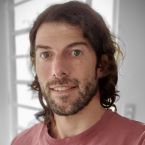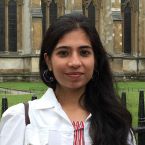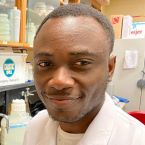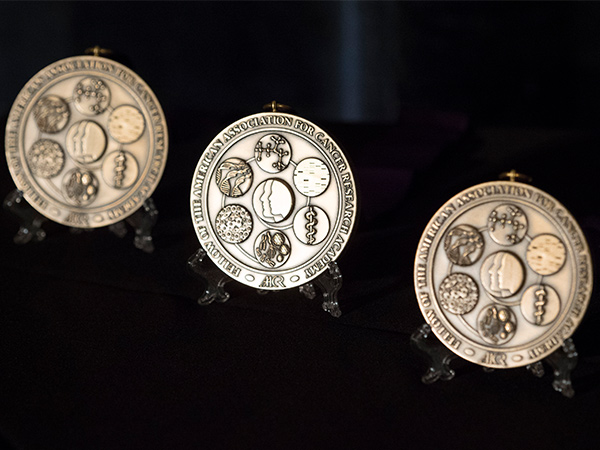Annual Meeting 2022: Global Scholars-in-Training to Gather in New Orleans
The American Association for Cancer Research (AACR) is proud to offer Global Scholar-in-Training Awards (GSITA) to support the career development of meritorious early-career scientists from countries building cancer research capacities. This month, the GSITA program, now in its fourth year, will bring promising scientists from nine countries—Jordan, Nigeria, Perú, India, Colombia, China, Brazil, Serbia, and Argentina—to participate in AACR Annual Meeting 2022 in New Orleans.
The awardees are:
- Hassan Abushukair, Jordan University of Science and Technology, Irbid, Jordan
- Mary Adetutu Adewunmi, National Centre for Technology Management (NACETEM), Lagos, Nigeria
- Babajide Ajayi, PhD, Ajayi Crowther University, Oyo, Nigeria
- Andrea Anampa-Guzmán, Universidad Nacional Mayor de San Marcos, San Fernando Medical school, Lima, Perú
- Titilope Dokunmu, PhD, Covenant University, Ota, Nigeria
- Delfin Lovelina Francis, MDS, All India Institute for Medical Sciences, New Delhi, India
- H. Michelle Guevara-Nieto, Instituto Nacional de Cancerologia – Universidad Nacional de Colombia, Bogotá, Colombia
- Jie Huang, PhD, Affiliated Hangzhou Cancer Hospital, Zhejiang University School of Medicine, Hangzhou, China
- Rahul Kumar, All India Institute of Medical Sciences, New Delhi, India
- Jude Okoye, PhD, Nnamdi Azikiwe University, Nigeria, Nnewi, Nigeria
- Barbara Paranhos Coelho, PhD, University of São Paulo, São Paulo, Brazil
- Marijana Pavlovic, PhD, Institute for Oncology and Radiology of Serbia, Belgrade, Serbia
- Pablo Sanchis, University of Buenos Aires – CONICET, Buenos Aires, Argentina
- Xinfeng Wang, National Cancer Center/Cancer Hospital, Chinese Academy of Medical Sciences and Peking Union Medical College, Beijing, China
- Anjali Yadav, Indian Institute of Technology Kanpur, Uttar Pradesh, India
Visit the GSITA page to learn more about this year’s class.
As the 2022 scholars prepare for the meeting, last year’s recipients shared highlights of their experience.
Juan Bizzotto of University of Buenos Aires in Argentina

Did your attendance at the Annual Meeting assist in refining your research and career path?
In 2021, I was awarded with an GSITA grant, and that gave me the opportunity to attend my first AACR Annual Meeting, although it was held virtually due to the pandemic. This event helped me grasp the size and the diversity of the AACR community. Being able to attend the lectures, listen to experts in the field, and network with peers was hugely inspirational. Overall, the whole experience was a huge motivation to keep working toward innovation in cancer research and cancer research advocacy.
Carla Daniela Robles-Espinoza, PhD, of the International Laboratory for Human Genome Research, National Autonomous University of Mexico in Queretaro, Mexico

How does your home country or culture influence your work?
I study cancer genomics, so I am working to apply what I’ve learned throughout my career to the Mexican population. I primarily study a type of cancer called acral lentiginous melanoma (ALM), which is a type of melanoma that arises in sun-shielded sites such as the palms of the hands and soles of the feet. ALM is considered a rare type of cancer, but it is the most common type of melanoma in Mexico and other countries in Latin America, Africa, and Asia. As its genomics are quite different to other types of melanoma, I am hoping that by directly studying tumors from Mexican patients I can contribute positively to local research development and, in the long term, help patients with this type of cancer.
Apoorva Uboveja, PhD, UPMC Hillman Cancer Center, University of Pittsburgh, United States
During the 2021 Annual Meeting, Uboveja was completing her PhD work at Dr. B.R. Ambedkar Centre for Biomedical Research, University of Delhi, in India. She is now a postdoctoral associate at the University of Pittsburgh and is currently working on the epigenetic regulation of metabolism of high grade serous ovarian carcinoma.

In what ways did you participate in the Annual Meeting 2021?
Attending this meeting was a truly enriching experience for me. Even though it was virtual, I was able to connect and discuss my research with so many researchers and scientists working in the field of cancer biology. I presented my PhD work titled “p73-FER1L4 lncRNA axis plays a critical role in suppression of cancer cell migration, invasion and metastasis in a p73-dependent manner via inhibition of miR-1273g-3p.”
How do you see the GSITA furthering your opportunities?
The GSITA events gave me the opportunity to connect with certain eminent scientists working in the field of ovarian cancer who held one-on-one sessions with me, guiding me so well for my postdoctoral project. The one-on-one sessions were the true highlights for me. I was able to discuss my ideas and the various funding and grant opportunities offered by the AACR to develop as an independent researcher. The career development sessions were tremendously helpful to me as I became aware of so many opportunities that could help me nurture my career as a cancer biologist.
Isaacson Bababode Adelani of Covenant University in Ota, Nigeria
How did the Annual Meeting help prepare you for the next stage in your career?

GSITA gave me a direct platform to learn and interact with world-class researchers, both during and after the meeting. The award was timely in helping me chart a career road map while learning more about recent advancements and the future of cancer research. Apart from meeting brilliant minds, sharing ideas, and networking, GSITA’s special personalized sessions gave me a chance to learn the rudiments necessary for effective career growth as a scientist. This opportunity further exposed and expanded my knowledge base in cancer research and bolstered research ideas. I shared my experiences with colleagues during lab meetings using excerpts and summaries of various findings from the Annual Meeting. My experiences were also shared during collaborative research with others.
Did your attendance at the Annual Meeting assist in refining your research and career path?
My attendance at the Annual Meeting changed my general perspective about research and has been instrumental in helping me achieve my goal of proffering solutions to daunting cancer research problems. I was a graduate student during the 2021 Annual Meeting. I have since completed my PhD and am presently working as a lecturer and researcher at Covenant University, Nigeria, with a focus on cancer genomics and health disparities.



